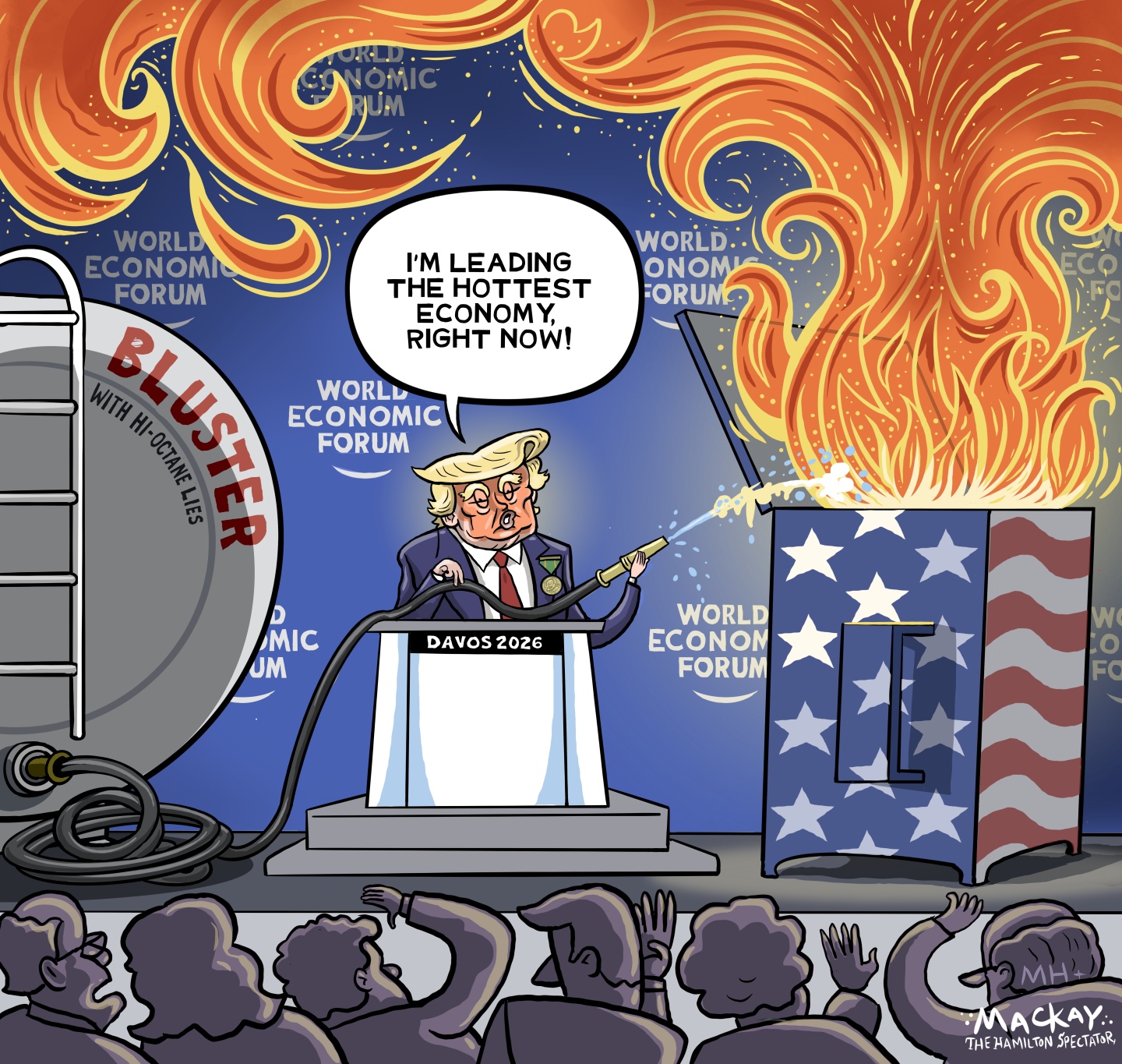Save the internet!
We have to rescue the internet from ravenous corporate monopolies. And we can do much better than net neutrality.


The Trump administration has a brand-new corporate giveaway: the internet!
President Trump's chair of the Federal Communications Commission, Ajit Pai, announced last week that his agency was going to repeal the Obama-era rules on "net neutrality," which govern the basic structure of the internet. It's a horrible idea. But Americans need to start thinking about what to do in the future, after Trump is gone. We can restore this rule, sure — but we can also go even farther. And we should. For starters, let's levy even stronger regulations and market controls to make the internet much, much better than it currently is.
So what is net neutrality? The basic idea is that telecommunications providers have to treat all data equally. In keeping with the egalitarian philosophy of the World Wide Web, the point is to make the internet an open platform where people can communicate freely, and businesses compete on quality and price — not by attempting to force consumers one way or another with their market power.
The Week
Escape your echo chamber. Get the facts behind the news, plus analysis from multiple perspectives.

Sign up for The Week's Free Newsletters
From our morning news briefing to a weekly Good News Newsletter, get the best of The Week delivered directly to your inbox.
From our morning news briefing to a weekly Good News Newsletter, get the best of The Week delivered directly to your inbox.
Repealing net neutrality would make it possible to provide tiered service — where the cheapest internet package would buy you access to, say, Netflix, Google, and Facebook and a few other big-time services, but getting the full internet would cost more. Independent websites would likely flood onto new sub-websites hosted by the Facebooks of the world, where they'd have access to a bigger audience but would also be subject to certain exploitation at the hands of the platforms.
Additionally, given the fact that telecoms also own large content providers (Verizon owns Oath, Comcast owns NBC, and AT&T is attempting to buy Time Warner), it's also a guaranteed route for those companies to corral their customers into watching content provided by the same company. In a future without net neutrality, instead of being able to watch whatever is being produced by anyone, you'll either just have to submit to whatever the local monopoly is willing to provide, or pay through the nose for a universal service (if they'll even deign to provide that). So much for free-market competition!
However, net neutrality is not that strong of a regulation. Indeed, for all the well-deserved ruckus over this regulatory rollback, net neutrality is really pretty mild. It doesn't interfere with monopolist control over whole regions, or ensure a fair playing field for municipal broadband, or stop the platform monopolies from effectively privatizing the entire World Wide Web, or stop vertical integration of telecoms with content producers.
So here's a sketch of what can be done to improve things, after we bring back net neutrality.
A free daily email with the biggest news stories of the day – and the best features from TheWeek.com
First, ban vertical integration. As my colleague Jeff Spross argues, the Trump Department of Justice lawsuit against the proposed AT&T merger, while probably driven by Trump's bizarre anti-CNN animus, actually makes a lot of sense and should be supported. Vertical integration of communication and content is unjustifiable, highly prone to abuse, and should be banned permanently.
Second, bring in a new rule: local loop unbundling. This regulation — which is the standard in most places outside the United States — mandates that companies have to give their competitors access to the wires that hook up each individual connection to the local network trunk. That way you can have competition without start-up competitors having to build colossally expensive parallel networks to millions of homes — which realistically they aren't going to do. (Such a regulation was actually part of the Telecommunications Act of 1996, but the Supreme Court held that it didn't apply to cable internet, and so that part of the law is mostly a dead letter.) Studies demonstrate that other countries with local loop unbundling have cheaper and faster internet — indeed, with reasonably vigorous competition, net neutrality would be substantially less necessary.
Third, break up the big telecoms. Now, some level of local dominance is probably inevitable, because big internet pipes (like any major communication infrastructure), tends toward a natural monopoly. But at least we can keep companies from monopolizing whole multi-state regions — and with local loop unbundling, there will still be competition. Meanwhile, we can protect public options for the internet, in case cities or states want to set up their own internet service — forbidding stuff like the big telecoms running to their paid-up stooges in the North Carolina state legislature to protect themselves from competitive municipal broadband.
Fourth, break up and regulate the platform monopolies. For starters, Google should be forced to divest DoubleClick and YouTube, and placed under common carriage rules to stop it from abusing its search monopoly; Facebook should be forced to divest Instagram and WhatsApp, and its Facebook Messenger placed under interoperability rules so that it will work with other chat programs.
With a bit of reform and sustained attention, we can make American internet at least as cheap, fast, and reliable as it is in Europe or South Korea. With a bit of spending, we could wire up even the most remote rural communities as well. We just have to give it the old college try.
Ryan Cooper is a national correspondent at TheWeek.com. His work has appeared in the Washington Monthly, The New Republic, and the Washington Post.
-
 Political cartoons for January 25
Political cartoons for January 25Cartoons Sunday's political cartoons include a hot economy, A.I. wisdom, and more
-
 Le Pen back in the dock: the trial that’s shaking France
Le Pen back in the dock: the trial that’s shaking FranceIn the Spotlight Appealing her four-year conviction for embezzlement, the Rassemblement National leader faces an uncertain political future, whatever the result
-
 The doctors’ strikes
The doctors’ strikesThe Explainer Resident doctors working for NHS England are currently voting on whether to go out on strike again this year
-
 The billionaires’ wealth tax: a catastrophe for California?
The billionaires’ wealth tax: a catastrophe for California?Talking Point Peter Thiel and Larry Page preparing to change state residency
-
 Bari Weiss’ ‘60 Minutes’ scandal is about more than one report
Bari Weiss’ ‘60 Minutes’ scandal is about more than one reportIN THE SPOTLIGHT By blocking an approved segment on a controversial prison holding US deportees in El Salvador, the editor-in-chief of CBS News has become the main story
-
 Has Zohran Mamdani shown the Democrats how to win again?
Has Zohran Mamdani shown the Democrats how to win again?Today’s Big Question New York City mayoral election touted as victory for left-wing populists but moderate centrist wins elsewhere present more complex path for Democratic Party
-
 Millions turn out for anti-Trump ‘No Kings’ rallies
Millions turn out for anti-Trump ‘No Kings’ ralliesSpeed Read An estimated 7 million people participated, 2 million more than at the first ‘No Kings’ protest in June
-
 Ghislaine Maxwell: angling for a Trump pardon
Ghislaine Maxwell: angling for a Trump pardonTalking Point Convicted sex trafficker's testimony could shed new light on president's links to Jeffrey Epstein
-
 The last words and final moments of 40 presidents
The last words and final moments of 40 presidentsThe Explainer Some are eloquent quotes worthy of the holders of the highest office in the nation, and others... aren't
-
 The JFK files: the truth at last?
The JFK files: the truth at last?In The Spotlight More than 64,000 previously classified documents relating the 1963 assassination of John F. Kennedy have been released by the Trump administration
-
 'Seriously, not literally': how should the world take Donald Trump?
'Seriously, not literally': how should the world take Donald Trump?Today's big question White House rhetoric and reality look likely to become increasingly blurred
